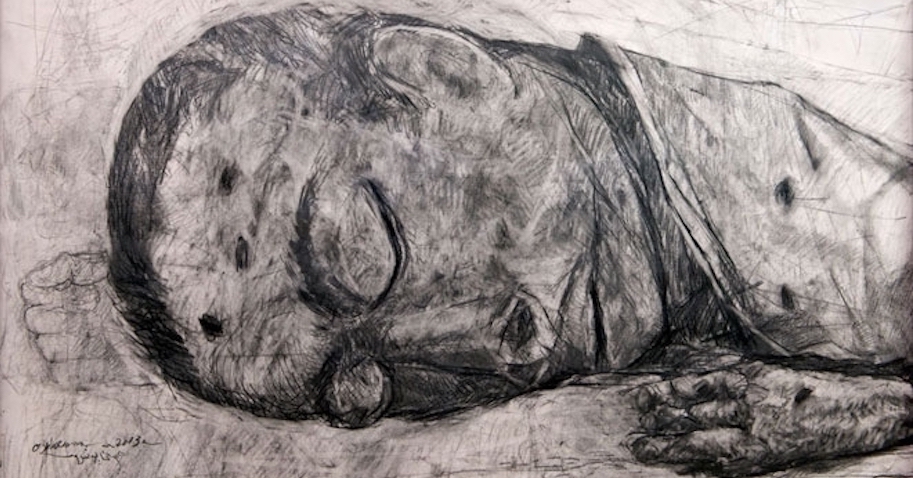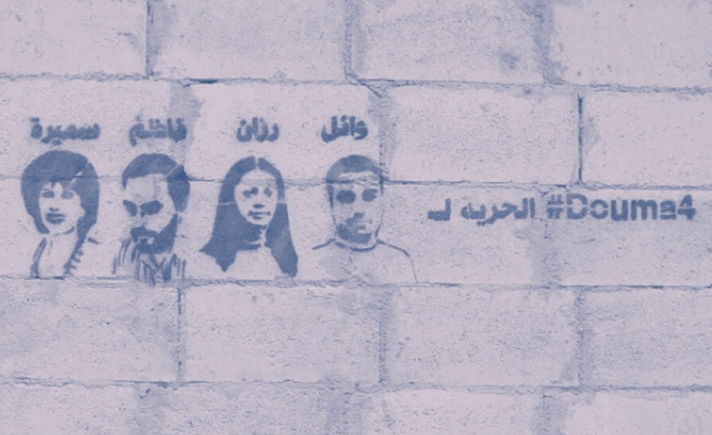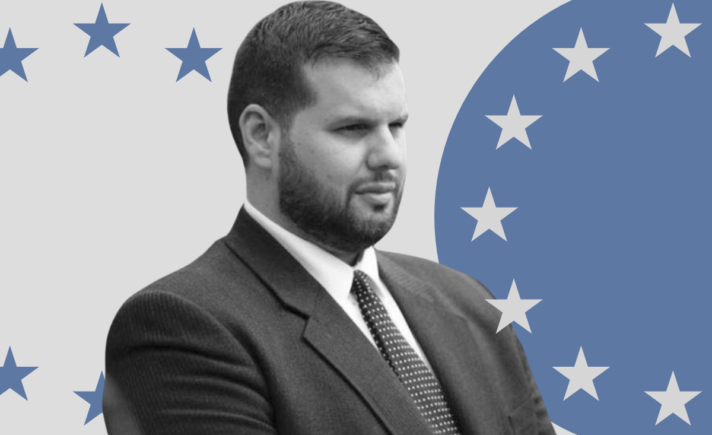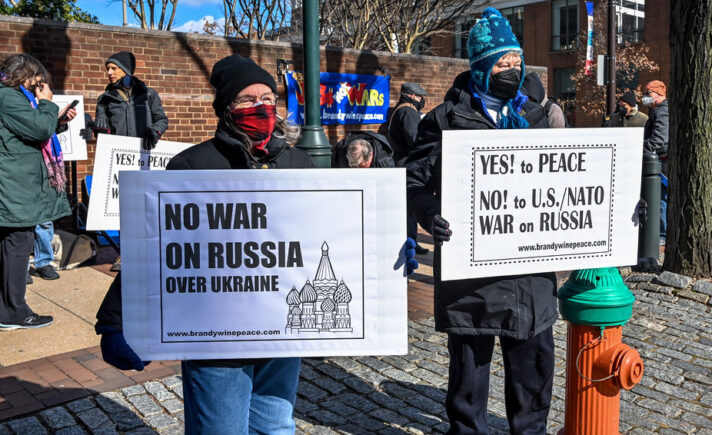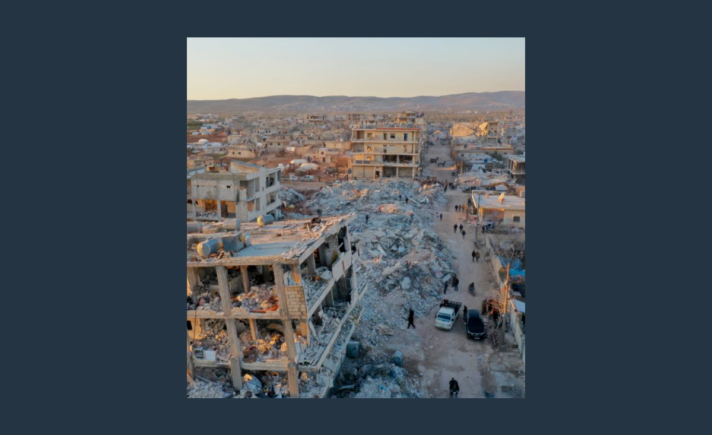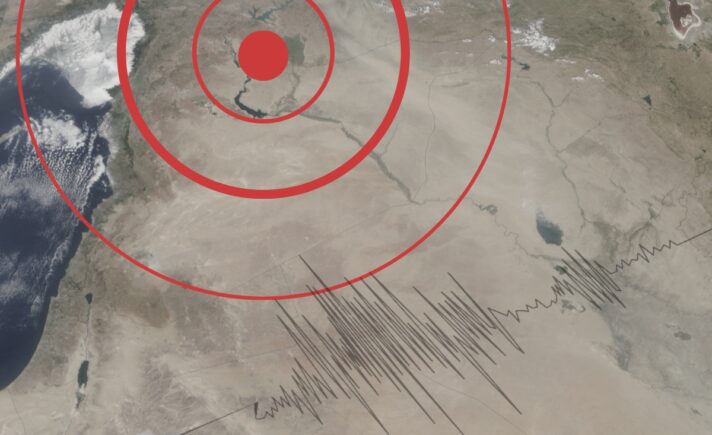[Editor’s note: This article was originally published in Arabic on 13 August, 2018]
Recent weeks have seen thousands of Syrian families notified of the deaths of missing relatives in Assad regime custody. In one sense, this is nothing new, in terms of the regime’s long-established strategy of arresting and murdering its opponents. The clear spike in cases, however, with horrifying numbers reached in the past six months since February, invites us to look closer at the broadening of this strategy in parallel with the military victories achieved by the regime and its allies on the ground, accompanied by their continuous attempts to change the legal and humanitarian character of this critical issue.
“The circulation of thousands of death documents appears to be the founding act of a repression system more severe than that which preceded the revolution, this time under Russian auspices,” says Habib Nassar, a Lebanese human rights and transitional justice lawyer who is currently Director of Policy and Research at Impunity Watch, a non-profit organization working for accountability for atrocities perpetrated in various conflicts around the world. Nassar has substantial experience in the legal and human rights aspects of forced disappearance, among other issues. His previous work has included directing the Middle East and North Africa Program at the International Center for Transitional Justice and advising the Office of the United Nations High Commissioner for Human Rights on transitional justice in North Africa.
Al-Jumhuriya conducted the following interview with Nassar to try and better understand the legal and human rights dimensions of the continuing massacre of detainees and the disappeared in Syria at the hands of the security apparatuses and armed forces of the Assad regime and its allies.
Al-Jumhuriya: Since February, human rights centers and the media have seen the Syrian regime declare a much higher number of names of detainees who have been executed in detention, whether as a result of death sentences in trials not attended by anyone, or for ostensible health reasons such as “heart attacks.” Relatives are notified indirectly for the most part, such as by sending a death certificate to the local registry office, or by summoning the family to military hospitals through local officials. And while this policy was already followed previously, ever since the first year of the revolution, the large and increasing number of names of killed detainees sent recently points to a widespread measure taken to bring an end to the detainees issue. Do you think this measure could permit the regime and Russia to close the detainees’ file, or even shorten it, and turn the vast numbers of detainees and disappeared into smaller numbers, and try to turn the page on the whole issue?
Habib Nassar: This bureaucratic measure will certainly not lead to the end of the detained and disappeared issue, because this cannot be resolved except in accordance with particular criteria and conditions, clearly determined by international human rights law and international humanitarian law. It would require, first, the release of all political detainees, and the determination of the fate of those forcibly disappeared among them. It’s worth noting here that forced disappearance has happened to a terrifying number of detainees in Syria, due to there being no information available about them, or no knowledge by their families of the locations of their detention, or the agency responsible, or the circumstances at the time of detention. It’s clear that the death documents issued by the regime are not to be considered determinative of the fate of the disappeared according to international law, nor even according to Syrian law itself, as far as I’m aware. The issuance of death documents or the alteration of personal status papers are merely administrative procedures carried out only if the death of a disappeared person is proven, yet proving the death of a disappeared person requires determining the location of their remains, and notifying their family of this location, and returning the remains to them.
Yet resolving the issue doesn’t end here, especially as the widespread and systematic extent of detention and forced disappearance and torture by the regime makes these crimes against humanity, meaning the resolution of the issue, and justice for the victims, can only happen through: 1) an independent investigation to determine the circumstances that led to the perpetration of these crimes, and the entities and individuals responsible for them; 2) pursuing and prosecuting those responsible for these crimes; 3) reparations for the damages suffered by the victims of detention and disappearance, and their families; 4) taking the legal measures and reforms necessary for the security agencies and judiciary, so as to prevent the repetition of these violations. These are the criteria and conditions that permit the resolution of the detention and disappearance issue in Syria. As for the bureaucratic measures taken by the regime so far, they can only be described as an attempt to conceal the crimes it has committed and cover its tracks, no more and no less.
In the present circumstances, and without a democratic transition in Syria, I believe it will be impossible to carry out any serious progress at the internal level to rectify the detainees and disappeared issue. That would require creating a dedicated, neutral, international mechanism, tasked with responsibility for addressing the issue.
Just as the regime did with regard to forced displacement, and Law No. 10, it tries here to create an administrative or legal fait accompli with which to obtain political or even monetary gains using the bodies of the victims and their properties. With the international silence and absence of any true international pressure on the regime or the Russians to resolve the detainees and disappeared issue, it appears that, instead, the two have chosen a strategy permitting them to send a clear message of terror that could pave the way for the coming phase, the title of which will be: the regime and its supporters have the right to decide the life or death of the Syrian people, and all who try to stand against them. The circulation of thousands of death documents appears to be the founding act of a repression system more severe than that which preceded the revolution, this time under Russian auspices. This is suggested by the fact that detention is still ongoing at the same rate, now targeting the areas in which the regime and the Russians have regained control, such as Eastern Ghouta.
Al-Jumhuriya: When the families of the forcibly disappeared extract death certificates for their relatives, do they thereby give the regime a chance to evade legal responsibility for the disappearances, especially as all the detainees who passed away in the regime’s prisons, and whose names were handed over recently, did not have their remains handed over, nor so much as an indication of the location of their burial?
Nassar: Neither the issuance of death documents by the authorities, nor the extraction of death certificates by the families, has any effect on the right of those people to know the fate of their forcibly disappeared sons and daughters, or any of their other rights, such as the right to hold accountable those responsible for the crimes of disappearance and arbitrary detention and torture and extrajudicial execution, and their right to reparations for physical, psychological, moral, and material damages suffered, and to obtain guarantees that these crimes will not recur.
It’s possible that the relatives are compelled to extract death certificates as a result of pressures from the authorities, in an attempt to block the families’ path to demanding their rights, but from the perspective of international law, these death certificates have no effect on the duty of the state to determine the fate of the forcibly disappeared, especially as these certificates are issued by the very authority responsible for their disappearance and detention in its prisons. As I mentioned, the death of a forcibly disappeared person is only proven by the determination of the location of their remains, and their handover to relatives. There are cases where it is not possible to hand over remains, as a result of the destruction of the corpse, as happened to the Moroccan opposition leader Mehdi Ben Barka, who was kidnapped in Paris in 1965, and whose body was said to have been dissolved in acid. But these kinds of cases have become rare and exceptional, because scientific advances allow us in most cases today to carry out tests even on disfigured or burnt human remains, for example. In the event of remains being nonexistent, and of there being no possibility of handing them over, the death can be proven by a serious investigation, and the provision of other evidence. But, as I said, such cases are exceptional.
It’s worth mentioning here that some families, for financial reasons, are sometimes forced to extract a death certificate for a disappeared relative, in order, for example, to receive their salary or end-of-service compensation, and to deal with their possessions and protect them. The current legal judgments pertaining to the so-called deceased or absent are unsuitable for rectifying the situation because of the long time periods stipulated by these judgments before the announcement of death or permission for the family to dispose of the monies and properties of the disappeared, and also because of the vast numbers of cases, with some estimates pointing to 70,000 forcibly disappeared persons. If we were in a normal situation, it would have been incumbent on the state to issue a law to organize these administrative matters in a temporary way to facilitate the affairs of the families in the period preceding the final determination of the fate of the disappeared.
Al-Jumhuriya: Per international legal conventions, does the forcibly disappeared person continue to be regarded the same way after the handover of death documents to the local registry office by the regime? Without the clear revelation of their fate?
Nassar: Yes, declarations and documents of death issued by the regime will not change anything in the legal description of the cases of forced disappearance that pertain to them, and the provisions of international law pertaining to forced disappearance continue to apply to them. Firstly, because these declarations and documents are highly suspect, in light of the fact they are issued by the very entity responsible for the disappearance. And secondly, and I repeat here, the death of a forcibly disappeared person is not proven except after determining the location of their remains, and the handover to relatives thereof.
It is very important here that the concerned international entities and civil society associations pursue their dealings with the matter as cases of forced disappearance, and do not accept the claims of the regime except in the individual cases where the family of the disappeared person is persuaded of the death, and choose not to approach the issue as one of [unforced] disappearance.
Al-Jumhuriya: Is it possible for the methods of handing over the names of the detainees murdered while in regime custody to become legal evidence used against the regime in its capacity as the actor responsible for the victims’ disappearance and murder?
Nassar: Absolutely. If we combined the means of declaring detainees’ deaths adopted by the regime with other evidence pertaining to the arrests of the detainees by its security agencies, we would have a strong presumption that these agencies are responsible for the disappearance, and likewise for the killing in the case of determining death. Moreover, it is certainly possible to use these documents and the circumstances of the declaration of death as evidence in investigations into the crimes committed by the regime, and in lawsuits filed against those responsible within it. I hope here that the [UN-established] International, Impartial and Independent Mechanism (IIIM) for Syria
Al-Jumhuriya: In your experience, what will be the effect of the continuation of a political process sponsored for the most part by the regime’s allies, such as that taking place in Sochi, on the detainees issue? And is it possible for agreements signed in this process to have any effect on the legal status of the detainees and forcibly disappeared in Syria?
Nassar: I think the strategy of the regime and its allies may be aimed at removing the detainees issue, along with any other ones pertaining to the crimes they commit, from the framework of any negotiation process or political track. Normally, entities committing gross violations of human rights exploit peace negotiations in order to pass through general amnesty agreements for those violations. However, with the current power balances, and in the absence of any international pressure to speak of, it seems the regime and its allies do not even deem it necessary to agree on the issuance of an amnesty law, and perhaps they believe the current Syrian laws that anyway provide immunity to the security agencies are sufficient to protect them from prosecution. It remains incumbent on the negotiating entities representing the opposition forces to hold fast to the detainees’ cause, and to others pertaining to war crimes and crimes against humanity. It remains up to them to put the detainees and disappeared issue at the head of their priorities, and to demand that any agreements that may be signed within these political processes incorporate mechanisms to address it in accordance with the aforementioned international standards. If this issue is removed from the negotiation table, then what is left to negotiate over?
Al-Jumhuriya: What is your legal advice to detainees’ families who have obtained news from regime-linked institutions to the effect that their relatives have been killed? What is the best way to proceed in order to safeguard their right to uncover the fate of their relatives clearly, and to safeguard their other moral and legal rights?
Nassar: It is very difficult to give general advice suitable for all individual cases. Each family faces its own particular circumstances, and undertakes its decisions accordingly, so I am not at all in a position permitting me to provide advice to the families of the detainees. I will repeat only that international law recognizes specific rights for the families of detainees and the forcibly disappeared, which are the right to know the fate of the person, and the circumstances of their arrest or disappearance, and the entity responsible for it, and the right to retrieve the remains of those killed or deceased. And this right is not related only to the right of knowing the fate, but also to the right of any human to bury their loved ones with dignity; and the right to hold accountable those responsible for the detention or disappearance; and the right to compensation for psychological, physical, moral, and material damages suffered, by rehabilitating the detainee or disappeared person, and guaranteeing the non-recurrence of the crime. If the family of a disappeared person is forced to extract a death certificate for them as a result of specific pressures, that doesn’t mean they’ve relinquished their right to know their fate. It is not possible in any case for this right to be relinquished.
It’s very important that family members retain as much as possible of the information or evidence in their possession about the circumstances of the arrest of the disappeared person, and the location of their detention, and the entity responsible, and other simple things like the clothes or glasses they were wearing on the day of their arrest, or any distinguishing marks on their body, and so on. Any small detail or piece of information can be important in investigations that may occur in future. If relatives want, they can contact the Syrian organizations that work in the field of documenting cases of detention or forced disappearance, or even the International Committee of the Red Cross, and share this information with them. Equally, it is possible to submit complains to the UN staff dealing with forced disappearance. These organizations do not have huge abilities to support the families, but through the documentation they carry out, they are able to support any international investigations into the matter, or lawsuits filed at European courts.
On another note, it is useful for the families to contact one another, if circumstances permit it. I discovered, in my experience, that the solidarity relationships that develop between the families give them the strength needed for the long journey toward truth and justice.
Al-Jumhuriya: As far as you know, does the regime’s strategy resemble any previous strategies pursued by dictatorial regimes working to put an end to the issue of the detained and disappeared?
Nassar: The dictatorial regimes that practice forced disappearance generally engage in a systematic denial of their relationship with, or knowledge of, such cases. This, for example, was the case with Argentina in the days of the military regime, where the authorities denied there were cases of forced disappearance, at a time when the number of los desaparecidos stood at thirty thousand, and described the mothers of the disappeared who were protesting in front of the presidential palace at the Plaza de Mayo in Beunos Aires as “las locas” (“the madwomen”). As for the Syrian regime, it appears to take pride in its crimes.
Perhaps the case closest to the Assad regime’s strategy is the mass executions that took place in Iranian prisons in 1988, when between 4,500 and 30,000 political prisoners were exterminated. This crime was the founding act of the system of terror and repression that holds up the Iranian regime today. In the same fashion, the circulation of the names of thousands killed by the Syrian regime today forms the headline of the coming period.


